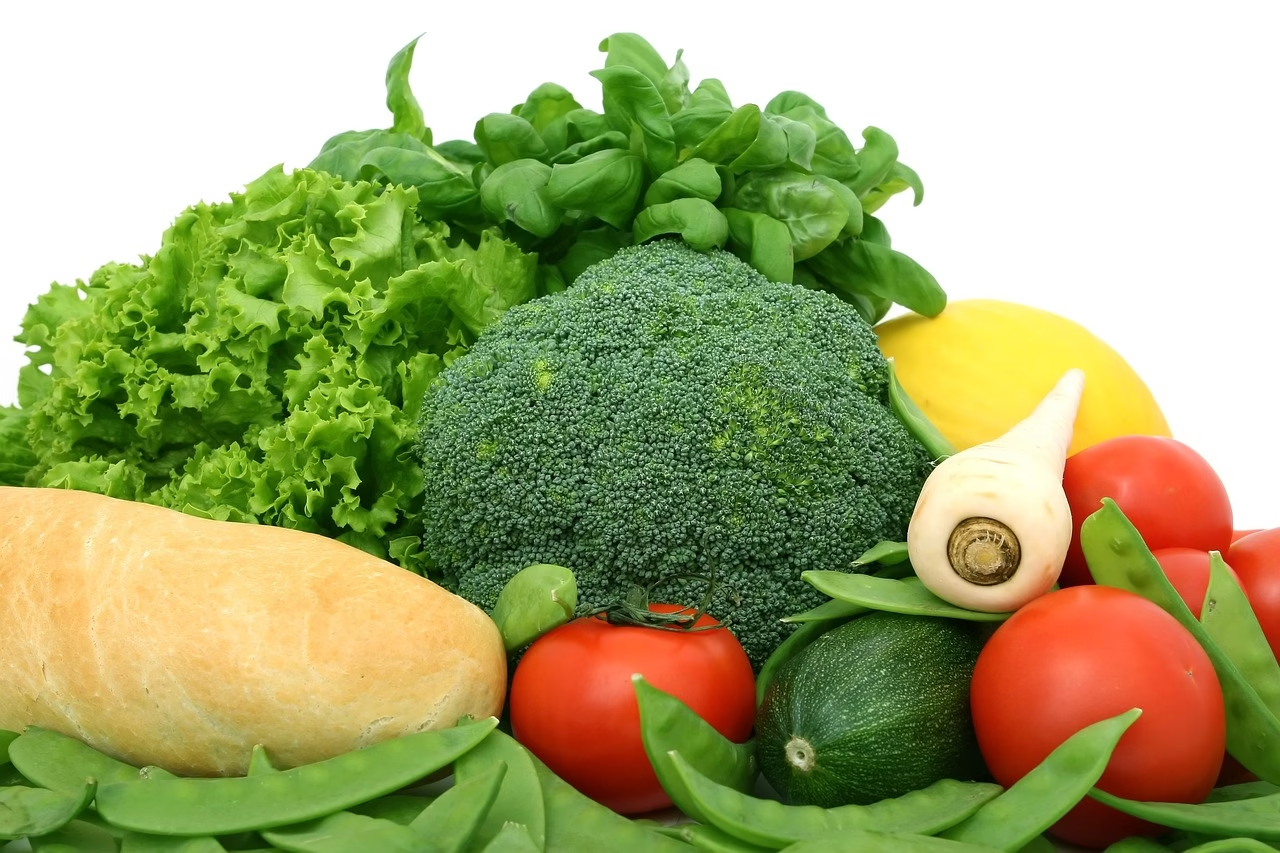Incorporating vegetarian foods for heart health can significantly reduce your risk of heart disease. Plant-based foods are packed with essential nutrients that support a healthy heart. In this post, we’ll highlight some of the best vegetarian foods you can eat to improve cardiovascular health.
1. Leafy Greens for Heart Health (Vegetarian foods for heart health).
Leafy greens like spinach and kale are among the top due to their high content of antioxidants and fiber.
- Why It Matters: Leafy greens help lower cholesterol, which can reduce the risk of heart disease and stroke.
Best Leafy Greens for Heart Health
Adding spinach, kale, and Swiss chard to your meals provides heart-healthy nutrients that support better circulation and blood pressure regulation.
2. Nuts and Seeds (Vegetarian foods for heart health).
Nuts like almonds, walnuts, and seeds are heart-healthy vegetarian options. They are rich in omega-3 fatty acids that help lower cholesterol and inflammation.
- Why It Matters: These healthy fats make a critical part of your diet for cardiovascular protection.
Heart-Healthy Nuts and Seeds
Include walnuts, chia seeds, and flaxseeds in your diet to provide essential omega-3 fatty acids that support heart health and reduce inflammation.
3. Whole Grains for a Healthy Heart
Whole grains like oats, quinoa, and brown rice are high in fiber and antioxidants that promote heart health.
- Why It Matters: Fiber-rich whole grains help lower blood pressure and cholesterol levels, key factors in preventing heart disease.
Incorporating Whole Grains Into Your Diet
Try adding whole grains to your meals by including oatmeal for breakfast, quinoa in salads, or brown rice in your dinner recipes.
4. Beans and Legumes (Vegetarian foods for heart health).
Beans, lentils, and other legumes are some of the best heart health. They provide plant-based protein and fiber that help regulate cholesterol and improve blood sugar control.
- Why It Matters: Legumes are an excellent substitute for meat, providing essential nutrients without the saturated fat.
Best Legumes for Heart Health
Add lentils, chickpeas, and kidney beans to soups, stews, and salads for a hearty and healthy addition to your meals.
5. Berries for a Stronger Heart
Berries like blueberries, strawberries, and raspberries are rich in antioxidants and vitamin C, both of which support a healthy heart.
- Why It Matters: The antioxidants in berries help reduce inflammation, improve blood vessel function, and reduce the risk of heart disease.
Include Berries in Your Diet
Top your oatmeal with fresh berries or add them to smoothies for a quick and delicious way to boost heart health.
6. Healthy Fats from Olive Oil and Avocados
Monounsaturated fats from olive oil and avocados are important for heart health. These vegetarian foods for heart health help improve cholesterol levels and protect the heart.
- Why It Matters: Olive oil and avocado provide healthy fats that support healthy cholesterol levels and reduce heart disease risk.
How to Include Healthy Fats in Your Diet
Use olive oil for cooking and add avocado slices to salads or spread on toast to enjoy the heart-healthy benefits.
Conclusion: Embrace Vegetarian Foods for Heart Health
Including a variety of vegetarian foods for heart health in your diet is a powerful way to reduce the risk of heart disease and improve overall cardiovascular health. Start by adding leafy greens, whole grains, nuts, and legumes to your meals for better heart health.
Learn More:
FAQs About Vegetarian Foods for Heart Health
1. What vegetarian foods are best for heart health?
Leafy greens, whole grains, legumes, nuts, seeds, and berries are excellent for heart health.
2. How can I reduce my heart attack risk with a plant-based diet?
Eating more vegetables, fruits, whole grains, and healthy fats can help lower cholesterol, blood pressure, and inflammation, reducing the risk of heart disease.
3. Are nuts and seeds really good for the heart?
Yes, nuts and seeds are rich in omega-3 fatty acids and other nutrients that support heart health by lowering cholesterol and inflammation.
4. Can I prevent heart disease with a vegetarian diet?
A vegetarian diet rich in nutrient-dense foods, like whole grains and legumes, can help prevent heart disease and improve overall heart health.
5. How can I start eating more vegetarian foods for heart health?
Start by incorporating more plant-based meals into your weekly routine, such as grain bowls, salads with legumes, and smoothies with berries.
Home
Omega-3 Fatty Acids
Parkinson’s Disease
Intermittent Fasting
Gym
Keto vs Fad diets
Calorie Count in Guinness and Other Drinks
Effective Weight Loss Diet
